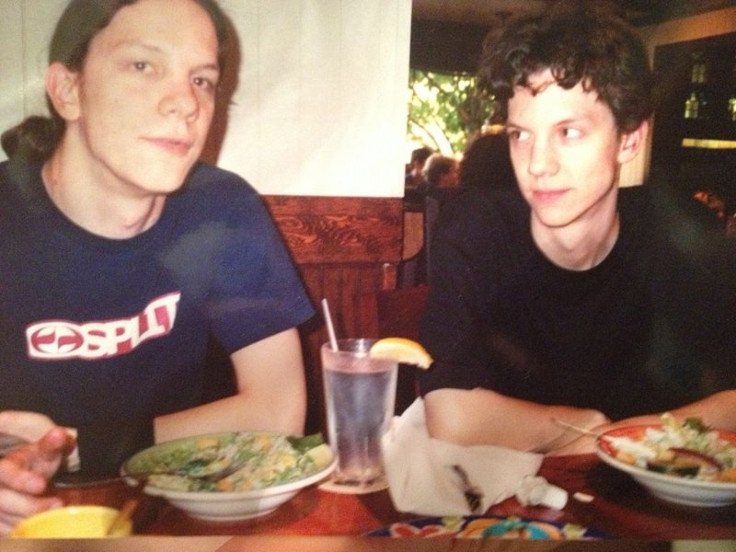Who Is Jeremy Hammond? Anonymous Hacktivist’s Supporters React To Prison Sentencing With #FreeHammond Campaign

Jeremy Hammond, the internet hacktivist who earlier this year pleaded guilty to hacking the servers of the intelligence firm Stratfor and leaking private data, was sentenced to ten years in prison and three years of supervised release in a Federal Court in New York on Friday. Hammond’s jail sentence was the maximum allowable under the plea deal.
Federal District Court Judge Loretta A. Preska said that Hammond’s actions demonstrated a “total lack of respect for the law” along with “unrepentant recidivism.” The ruling has sparked outrage among journalists, activists and supporters of the hacktivist collective Anonymous, on behalf of which Hammond worked. Hammond’s supporters have called the sentence “draconian,” and challenged that the FBI used a hacker-turned-informant known as Sabu to entrap the computer programmer.
They have also taken aim at Judge Preska herself, arguing that she should have recused herself from the case on the grounds that her husband’s law firm was a client of Stratfor, and that her involvement consequently represented a conflict of interest. Those supporters continue to protest Hammond’s sentencing in blog posts and across social media, through the campaign #FreeHammond.
As part of the three-year probationary period following his prison sentence, all of Hammond’s activities online will be monitored through software he has been ordered to pay for. He will also be forbidden from encrypting any of his data, or from disguising his online identity.
Days before Hammond’s sentencing, the government issued a memo to the judge, arguing that the activist deserved the maximum sentence. The widely-circulated memo stated that: “Contrary to the picture he paints of himself … Hammond is a computer hacking recidivist who, following a federal conviction for computer hacking, went on to engage in a massive hacking spree during which he caused harm to numerous businesses, individuals, and governments, resulting in losses of between $1 million and $2.5 million, and threatened the safety of the public at large, especially law enforcement officers and their families.”
The “recidivism” alluded to by prosecutors includes a conviction in 2006 for hacking into the computer systems of a conservative political group called Protest Warrior. Hammond spent two years in prison for that crime. The memo also criticized Hammond for his “malicious and callous contempt for those with whom he disagreed, particularly anyone remotely related to law enforcement not ‘concern[ed] with both transparency and privacy.’”
In an interview with The Guardian on Thursday from the Metropolitan Correction Center in New York where he is being held, Hammond, 28, condemned his prosecution as a “vengeful, spiteful act.” He said he had come to terms with the inevitability of a long prison sentence, but also called his prosecution a concerted show of intimidation by the U.S. government against hackers, who have caused the government a great deal of embarrassment.
But on Friday, the day of his sentencing, Hammond struck a more repentant tone. In his statement, the full text of which was published by the Sparrow Project, he addressed the memo’s three chief claims. Regarding his recidivism, Hammond acknowledged multiple past arrests for acts that he described as “civil disobedience” in Chicago, but said that 2005 marked the first time that he used his hacking skills to “break the law in political protest.”
“Could I have achieved the same goals through legal mean?” Hammond asked. “I have tried everything from voting petitions to peaceful protest and have found that those in power do not want the truth to be exposed. When we speak truth to power we are ignored at best and brutally suppressed at worst.”
After a two–year stint in prison, Hammond alleged that he had “thought long and hard about choosing this path again.” But he ultimately found that defiant acts from whistleblowers like Chelsea Manning reaffirmed his obligation of “fighting for truth”.
Hammond also partially argued against the prosecution’s claim of financial damages, claiming that his 2006 sentencing had been based on “arbitrary” calculations of an intended loss. However, he did not try to refute the last claim in the prosecution’s memo, that he had endangered the public and the lives of law enforcement officers. He simply ended with an apology, saying, “I apologize for the release of data that was harmful to individuals and irrelevant to my goals. I believe in the individual right to privacy… I appreciate the irony of my own involvement in the trampling of these rights.”
© Copyright IBTimes 2025. All rights reserved.



















